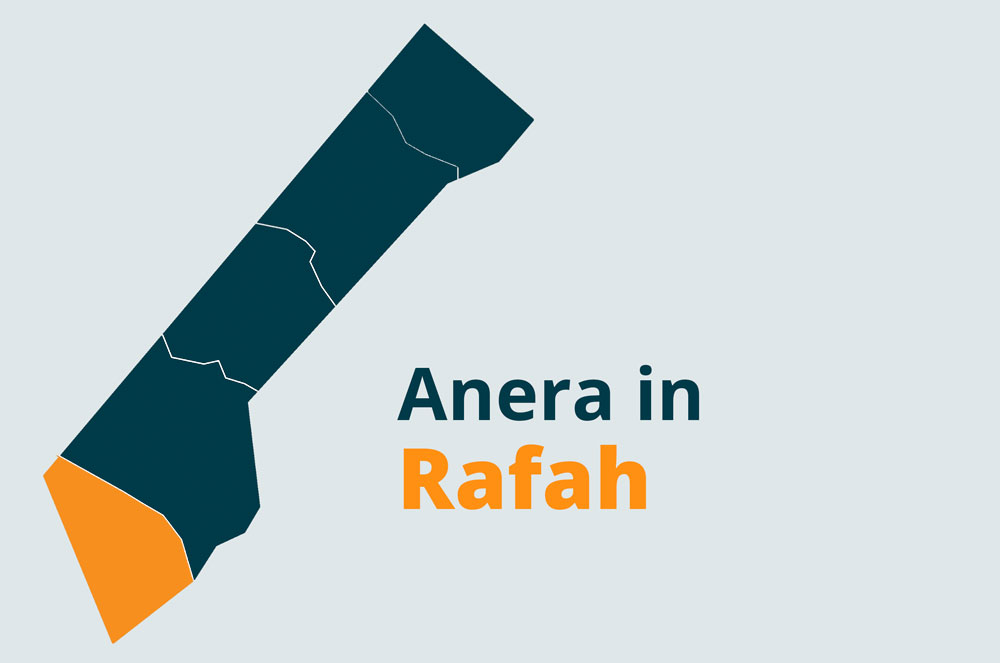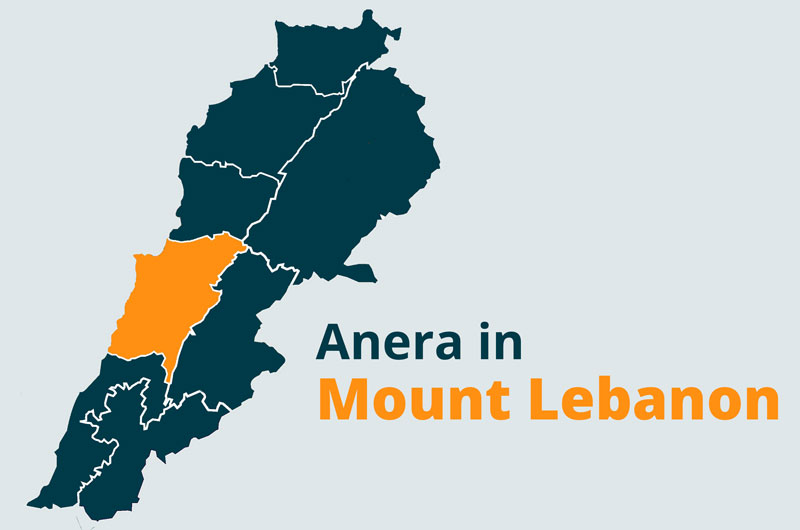Nov, 2017
Anera has referred about 17,130 youths and children to formal schools through its non-formal education program.
Five years ago, Nayef’s home was turned to rubble when a bomb hit the nearby area in Homs, Syria. Nayef and his wife and three kids fled and eventually made it to Beddawi refugee camp in northern Lebanon.
The tragic loss of their home deeply affected the family. The eldest son, 16-year-old Mohammad, developed epilepsy soon after the bombing. His younger brother Hussein, 15, suffers from several congenital disabilities that he’s had from birth. Since the war, his condition has deteriorated noticeably.
“It’s a big challenge for Hussein and me to go to school, given our health conditions,” says Mohammad. Hussein agrees. “Some children make fun of me because of my disability, but I’m used to it,” he says. “Instead, I try to focus on my education and the goals I want to achieve.”
Despite the challenges, both brothers dream of becoming lawyers. “I want to defend the rights of disadvantaged people,” says Hussein, with confidence. On the other hand, younger brother Abdul Hafiz, 11, yearns for a different path as a painter.
All three brothers used to be enrolled at a local learning center for Syrian refugees. Like many similar institutions, it was not officially recognized by the Lebanese Ministry of Education and Higher Education. That made it almost impossible for students to move on to formal schools.
This year, Anera is taking the lead as part of a national Back to School campaign implemented by the Lebanese government and UNICEF. The aim is to put children like Mohammad, Hussein, and Abdul Hafiz back on track for formal education, so they can eventually join their peers in traditional schools.
To launch the campaign, Anera recruited 340 volunteers to conduct field visits to refugee households to refer all school-age children to public schools. For refugees who have been out of school for years, the government now offers an Accelerated Learning Program (ALP) that allows students to complete one academic year’s worth of learning in a shortened period of three months.
Now Mohammad, Hussein, and Abdul Hafiz have been referred to the ALP program, and will be back in formal classrooms this month. “We took the ALP test early in October, and based on the score we’ll be placed in a grade,” says Hussein.
The two elder brothers have been attending Anera’s literacy and math courses that are part of its non-formal education program, primarily targeting youths affected by the Syrian crisis. The program is implemented in partnership with UNICEF and with funds from the governments of Germany. the Netherlands and the United Kingdom. The courses cover different subjects such as math, Arabic and English, as well as life skills. 6,596 youths have enrolled, mainly from the Syrian and Palestinian refugee communities. Mohammad and Hussein are two of 87 participating students who have disabilities.
“The courses have helped us a lot, especially in math and the English language,” said Mohammad. “The Syrian curriculum is in Arabic, but here in Lebanon, you need to know English to get anywhere.”
As of now, Anera has referred about 17,130 youths and children to formal schools through its non-formal education program.




